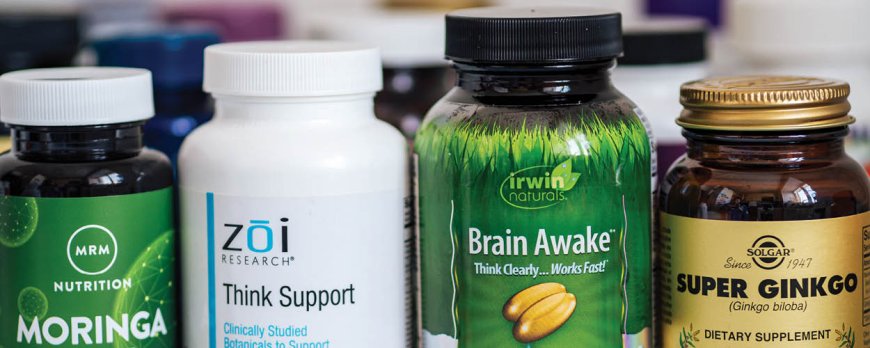What vitamins are best to take in the morning?
Discover the answer to 'What vitamins are best to take in the morning?' to start your day nutritionally balanced and energized.

Water-soluble Vitamins for Morning Energy
Water-soluble vitamins are highly beneficial to take in the morning as they aid in boosting energy levels throughout the day. Two key water-soluble vitamins that are recommended for morning consumption are vitamin C and B vitamins.
Vitamin C is an essential nutrient that supports immune function, helps in the production of collagen for healthy skin, and acts as a powerful antioxidant. Taking vitamin C in the morning can provide a refreshing kickstart to your day and help protect your body against oxidative stress.
B vitamins, including B6, B12, and folate, are known for their role in energy production and brain function. By taking B vitamins in the morning, you can give your body the necessary nutrients to support mental clarity and maintain steady energy levels throughout the day.
Recommended Water-soluble Vitamins for Morning Energy:
- Vitamin C
- Thiamine (B1)
- Riboflavin (B2)
- Niacin (B3)
- Pantothenic Acid (B5)
- Pyridoxine (B6)
- Biotin (B7)
- Folate (B9)
- Cobalamin (B12)
Remember, it is important to consult a healthcare professional before starting any new supplements or altering your vitamin routine. By incorporating water-soluble vitamins into your morning routine, you can optimize their absorption and experience increased energy levels throughout the day.
Vitamin C: A Morning Kickstart for Your Immune System
Including vitamin C in your morning vitamin routine can give you a much-needed kickstart to the day and strengthen your immune system. As a water-soluble vitamin, vitamin C is best taken on an empty stomach in the morning to maximize its absorption.
Vitamin C plays a crucial role in supporting immune function, as it helps stimulate the production of white blood cells, which are essential for fighting off infections and illnesses. It is also a powerful antioxidant, protecting the body against free radicals and reducing oxidative stress.
To incorporate vitamin C into your morning routine, start by drinking a glass of water and taking a vitamin C supplement or consuming vitamin C-rich foods, such as citrus fruits, strawberries, and bell peppers. Remember to consult a healthcare professional before starting any new supplements and to be consistent with taking vitamins daily.
Benefits of Vitamin C in the Morning:
- Boosts immune system
- Protects against oxidative stress
- Enhances absorption on an empty stomach
- Supports collagen production for healthy skin
Incorporating vitamin C into your morning vitamin routine can have a positive impact on your overall well-being. Start your day off right by giving your immune system the kickstart it needs with this essential vitamin.

B Vitamins - The Brain Boosters
By incorporating B vitamins into your morning routine, you can enhance cognitive function and maintain optimal energy levels throughout the day. These essential vitamins play a crucial role in brain function, mood regulation, and energy production.
One of the key B vitamins is vitamin B12, which is known for its ability to support cognitive health and prevent memory loss. It helps in the production of red blood cells and DNA synthesis, ensuring proper brain function. Another important B vitamin is vitamin B6, which aids in the production of neurotransmitters, such as serotonin and dopamine, that are responsible for regulating mood and emotions.
Benefits of B Vitamins:
- Enhance cognitive function
- Promote mood regulation
- Support energy production
- Aid in the production of neurotransmitters
In addition to their brain-boosting benefits, B vitamins also play a crucial role in maintaining a healthy metabolism. They help convert food into energy and support the proper functioning of the nervous system. Including foods rich in B vitamins, such as whole grains, leafy greens, and lean proteins, in your morning meal can ensure you get an adequate intake of these essential nutrients.
However, if you find it challenging to meet your B vitamin requirements through diet alone, taking a B complex supplement in the morning can be a convenient and effective solution. Consult with a healthcare professional to determine the optimal dosage and ensure it aligns with your individual needs.
Fat-soluble Vitamins for Essential Nutrient Absorption
Including fat-soluble vitamins in your morning routine is essential for maximizing nutrient absorption and overall health. These vitamins, including vitamin D, A, E, and K, play crucial roles in various bodily functions and require the presence of dietary fat for optimal absorption.
Vitamin D - A Sunshine Vitamin
Vitamin D, often referred to as the "sunshine vitamin," is essential for promoting bone health, supporting immune function, and regulating mood. Including a vitamin D supplement in your morning routine can help ensure you're meeting your daily needs, especially if you have limited sun exposure.
Vitamin A - Supporting Vision and Skin Health
Vitamin A is known for its role in maintaining healthy vision and skin, as well as supporting immune function. By incorporating vitamin A-rich foods or supplements into your morning routine, you can give your body the support it needs for optimal vision and skin health.
Vitamin E - A Powerful Antioxidant
Vitamin E acts as a powerful antioxidant, protecting cells from oxidative stress and promoting cardiovascular health. Including vitamin E-rich foods or supplements in your morning routine can help provide the necessary protection against free radicals and support overall wellness.
Vitamin K - Essential for Blood Clotting
Vitamin K is vital for blood clotting, bone health, and heart function. By including vitamin K-rich foods or supplements in your morning routine, you can support proper blood clotting and maintain optimal bone and heart health.
Remember to consult a healthcare professional before starting any new supplements and ensure you're consistent with taking your vitamins daily. By incorporating fat-soluble vitamins into your morning routine, you can maximize nutrient absorption and support your overall well-being.

Vitamin D - A Sunshine Vitamin
Starting your day with a vitamin D supplement can help maintain optimal levels of this vital nutrient, especially if exposure to sunlight is limited. Vitamin D is known as the "sunshine vitamin" because our bodies can produce it when the skin is exposed to sunlight. However, many people do not get enough sunlight or live in regions with limited sun exposure, making vitamin D supplementation essential.
Vitamin D plays a crucial role in supporting overall health, particularly in maintaining strong bones and teeth. It also supports the immune system, helping to defend against infections and promoting faster recovery. Additionally, vitamin D has been linked to mood regulation, with low levels associated with an increased risk of depression and seasonal affective disorder.
When choosing a vitamin D supplement for your morning routine, it is important to look for a high-quality product that contains the recommended daily dose. Consult with a healthcare professional to determine the appropriate dosage for your specific needs. Remember to take your vitamin D supplement with a meal or snack containing fat to ensure proper absorption, as it is a fat-soluble vitamin.
Vitamin A - Supporting Vision and Skin Health
Including vitamin A in your morning vitamin intake can support optimal vision, promote healthy skin, and boost your immune system. Vitamin A is a fat-soluble vitamin that plays a crucial role in maintaining healthy eyesight. It helps in the formation of light-sensitive cells in the retina, which are essential for good vision. By including vitamin A in your morning routine, you can ensure that your eyes are getting the nutrients they need to function properly.
In addition to its benefits for vision, vitamin A is also known for its positive effects on skin health. The vitamin helps in the production and maintenance of skin cells, promoting a smooth and youthful complexion. It can also help with issues like acne and dry skin. By including vitamin A in your morning vitamin intake, you can give your skin a natural boost.
Moreover, vitamin A plays a vital role in supporting your immune system. It helps in the maintenance of the integrity and function of your skin and mucous membranes, which act as barriers against pathogens. By including vitamin A in your morning routine, you can give your immune system a helpful boost, especially during times when you may be more susceptible to illness.

Vitamin E - A Powerful Antioxidant
Incorporating vitamin E into your optimal morning vitamins can provide powerful antioxidant support and contribute to overall health. Vitamin E is a fat-soluble vitamin that acts as a potent antioxidant, helping to protect the body's cells from damage caused by harmful molecules called free radicals. This essential nutrient plays a crucial role in supporting cardiovascular health and maintaining the integrity of cell membranes.
When it comes to taking vitamin E, it's important to ensure proper absorption. Since vitamin E is a fat-soluble vitamin, it is best taken with a meal or snack that contains fats. This allows for enhanced absorption and utilization by the body. Adding foods like avocados, nuts, seeds, or olive oil to your breakfast can provide the necessary fats needed for optimal vitamin E absorption.
Benefits of Vitamin E
- Promotes cardiovascular health: Vitamin E helps to prevent the oxidation of LDL cholesterol, which reduces the risk of heart disease.
- Protects against oxidative stress: As a powerful antioxidant, vitamin E safeguards cells against damage caused by free radicals, which can contribute to chronic diseases and premature aging.
- Supports immune function: Vitamin E plays a vital role in maintaining a healthy immune system, helping to protect the body against infections and diseases.
- Improves skin health: The antioxidant properties of vitamin E contribute to healthy skin by neutralizing free radicals and reducing oxidative stress.
Remember, consistency is key when it comes to taking vitamins. It's important to make it a part of your daily routine and consult a healthcare professional before starting any new supplements. By incorporating vitamin E into your optimal morning vitamins, you can support your overall health and well-being.

Vitamin K - Essential for Blood Clotting
Including vitamin K in your essential morning vitamins can ensure proper blood clotting, support bone health, and contribute to a healthy heart. Vitamin K plays a crucial role in the clotting process, helping to stop bleeding when you get a cut or injury. By including this vitamin in your morning routine, you provide your body with the necessary nutrients to maintain a healthy blood clotting system.
In addition to its role in clotting, vitamin K also supports bone health. It helps activate proteins that are involved in bone mineralization, ensuring that calcium is properly utilized to build and maintain strong bones. Taking vitamin K in the morning can support your overall bone health and prevent conditions like osteoporosis.
Furthermore, vitamin K has been shown to have potential benefits for heart health. It may help regulate calcium levels in the arteries, preventing the buildup of plaque and reducing the risk of cardiovascular diseases. By including vitamin K in your essential morning vitamins, you can contribute to a healthy heart and reduce the risk of heart-related issues.
Incorporating Vitamin K into Your Morning Routine
To ensure you're getting enough vitamin K in your essential morning vitamins, you can include foods rich in this nutrient in your breakfast. Dark, leafy greens like kale, spinach, and collard greens are excellent sources of vitamin K. You can add them to a morning smoothie, omelet, or simply enjoy them as a side dish. If you prefer a supplement, consult with a healthcare professional for guidance on the appropriate dosage and form of vitamin K for your specific needs.
Remember, consistency is key when it comes to taking your essential morning vitamins. Make it a habit to incorporate vitamin K into your morning routine to reap the benefits of proper blood clotting, strong bones, and a healthy heart.
Multivitamins - A Comprehensive Morning Support
Incorporating a high-quality multivitamin into your morning routine can offer comprehensive support for meeting your daily nutritional needs. These supplements are designed to provide a wide range of essential vitamins and minerals, ensuring that your body gets the necessary nutrients to function optimally throughout the day.
When choosing a multivitamin, look for one that contains a balanced blend of vitamins and minerals, including but not limited to vitamin A, C, D, E, K, and various B vitamins. These nutrients play crucial roles in supporting overall health, from boosting immune function to promoting healthy skin, bones, and brain function.
Taking a multivitamin in the morning is convenient and can help ensure that you start your day off on the right foot. It's recommended to take your multivitamin with a meal or snack that contains some fats, as this will aid in the absorption of fat-soluble vitamins. A glass of water can also be useful for swallowing the supplement and aiding digestion.
Benefits of Multivitamins:
- Support overall health and well-being
- Boost immune function
- Promote healthy skin, hair, and nails
- Aid in energy production
- Support brain function and improve cognitive performance
- Help fill nutrient gaps in your diet
It's important to note that while multivitamins can be beneficial, they should not replace a healthy diet. Eating a variety of nutrient-rich foods is still the best way to obtain essential vitamins and minerals. However, a multivitamin can serve as an excellent complement to a balanced diet, ensuring that you're meeting your daily nutritional needs.
Remember to consult with a healthcare professional before starting any new supplements, especially if you have any specific health concerns or are taking medications that may interact with certain vitamins or minerals. A healthcare professional can help determine the right multivitamin for you based on your individual needs.
Prenatal Vitamins - Vital for Expecting Mothers
Expecting mothers should prioritize including prenatal vitamins in their morning vitamin routine to ensure they and their baby receive the necessary nutrients. Prenatal vitamins are specifically formulated to support the unique needs of pregnant women during this critical time of development.
Here are some key reasons why prenatal vitamins are essential:
- Meeting Nutritional Needs: Prenatal vitamins contain higher levels of certain nutrients like folic acid, iron, calcium, and vitamin D that are crucial for fetal development and maternal health. These vitamins help support the growth of the baby's brain, spine, and organs.
- Reducing Birth Defects: Folic acid, a B vitamin found in prenatal vitamins, plays a vital role in preventing birth defects in the baby's brain and spine. Taking a prenatal vitamin with the recommended amount of folic acid can greatly reduce the risk of neural tube defects.
- Supporting Maternal Health: Pregnancy places increased demands on a woman's body. Prenatal vitamins provide essential nutrients to support the mother's overall well-being, including maintaining healthy energy levels, supporting bone health, and boosting the immune system.
Consult with Your Healthcare Professional
It is important for expecting mothers to consult with their healthcare professional before starting any new supplements, including prenatal vitamins. They can provide personalized recommendations based on individual needs and medical history.
Remember, while prenatal vitamins are beneficial, they are not a substitute for a healthy diet. A balanced diet consisting of fresh fruits, vegetables, whole grains, lean proteins, and other nutrient-rich foods is also crucial for a healthy pregnancy.
By incorporating prenatal vitamins into their morning routine and maintaining a healthy lifestyle, expecting mothers can take an active role in supporting their own health and the healthy development of their baby.
Conclusion
By incorporating the best morning vitamins into your daily routine, you can support your overall well-being, energy levels, and nutritional balance. When it comes to taking vitamins in the morning, it's important to consider the type of vitamin and its absorption requirements. Water-soluble vitamins, like vitamin C and B vitamins, are best taken on an empty stomach in the morning, with a glass of water. This timing maximizes their absorption and provides an energy boost to start your day.
On the other hand, fat-soluble vitamins, such as vitamin D, A, E, and K, should be taken with a meal or snack that contains fats. This is because these vitamins require the presence of dietary fat for optimal absorption. Including sources of healthy fats, like avocado or nuts, in your morning meal can ensure proper absorption of these essential nutrients.
If you prefer a more convenient option, multivitamins can provide a comprehensive blend of essential vitamins and minerals. These can be taken with a meal or snack that contains fat and a glass of water to support optimal absorption. Likewise, expectant mothers should prioritize prenatal vitamins in the morning to support their own health and the healthy development of their baby.
Remember, consistency is key when it comes to taking vitamins. It's important to establish a morning vitamin routine that works for you and to consult a healthcare professional before starting any new supplements. By making the right choices and ensuring proper timing, you can enhance the efficacy of your morning vitamin intake and enjoy the benefits of a well-nourished body.
FAQ
What vitamins are best to take in the morning?
The best vitamins to take in the morning will vary depending on the type of vitamin. Water-soluble vitamins, such as vitamin C and B vitamins, should be taken on an empty stomach in the morning to maximize absorption. Fat-soluble vitamins, such as vitamin D, A, E, and K, should be taken with a meal or snack containing fats to ensure proper absorption. Multivitamins and prenatal vitamins can be taken with a meal or snack that contains fat and a glass of water.
Why should water-soluble vitamins be taken in the morning?
Water-soluble vitamins, such as vitamin C and B vitamins, should be taken in the morning on an empty stomach to maximize absorption. Taking them with a glass of water can help enhance their absorption into the body.
When should fat-soluble vitamins be taken?
Fat-soluble vitamins, such as vitamin D, A, E, and K, should be taken with a meal or snack containing fats. This is because these vitamins require fat for proper absorption. Taking them with food helps ensure optimal absorption and utilization by the body.
Can multivitamins and prenatal vitamins be taken in the morning?
Yes, multivitamins and prenatal vitamins can be taken in the morning. It is recommended to take them with a meal or snack that contains fat and a glass of water for optimal absorption.
Is it important to be consistent with taking vitamins daily?
Yes, it is important to be consistent with taking vitamins daily. Consistency ensures that your body receives a steady supply of essential nutrients and maximizes the potential benefits of the vitamins. However, it is always best to consult a healthcare professional before starting any new supplements.

































































































































